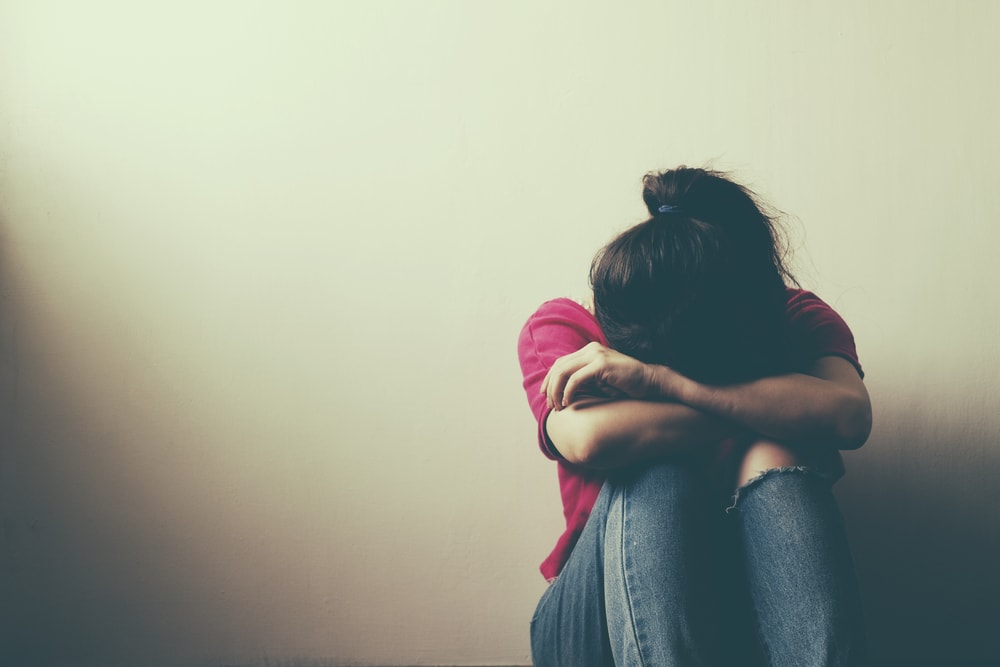Snowstorms leave families trapped. Tornadoes rip through homes. Wildfires ravage forests and towns. Floods continue to devastate cities. Hurricanes batter our shores. As traumatic events seem to strike at every turn, people have no choice but to leave behind life the way they knew it – homes, cars, treasured mementos, family heirlooms. If you’ve been faced with loss — whether you have lost a loved one, a home, job, or a relationship — you know how important it is to slow down and give yourself time to process your feelings of grief. It is okay to feel sorrow over what has been lost. It’s normal, in fact! But through these catastrophic events, we never fail to see the human spirit rise above and keep living. So, what are some of the keys to this kind of resilience?

Simply defined, resilience is the ability “bounce back” from difficult circumstances. When faced with hardship, you adapt, find a way to rebuild your life, and come back better than ever.
Practically speaking, how can you live a resilient life while dealing with the devastation of loss and financial instability? In a very real sense, when we lose the possessions most precious to us, it’s almost as if we are losing a part of ourselves and our connection to the past. Thankfully, there are many ways to build your resilience, and it is not a quality a person is born with, but a quality that is cultivated. You can be resilient and come out better, no matter what your struggle.
As you walk down the road of grief, think of these five keys as stepping stones. This is not an exhaustive list of how you can cultivate a resilient life, but it is a beginning. It takes great strength to mourn fully and well while also taking those first steps forward to a new life.
-
Allow Yourself to Grieve
It’s important to allow yourself to feel the emotions of your loss. It is a significant event to lose everything you’ve worked for, every possession that may have meaning to you. Don’t bottle up your emotions, thinking, “I should be grateful. I’m alive. What are a few things?” It does little good to belittle the loss that you feel. Acknowledge it, own the pain, and move toward healing. In one of the California fires, the home of “Peanuts” creator, Charles Schulz, burned to the ground. Jean Schulz, widow of Charles, shared that while the majority of “Peanuts” memorabilia is safely housed in a museum, she is devastated at the loss of the home she shared with Charles for 25 years as well as some irreplaceable keepsakes. The key is to give yourself permission to grieve.

-
Take Care of Yourself
No matter what event or circumstance you may be grieving, it’s important to take care of yourself. Your mind and body are connected, so as you take care of your body, you care for your mind. Make sure to get enough sleep and exercise, and do not seek to dull your grief but experience it and express it. Making connections is also a big part of building resilience and maintaining personal well-being. Stay connected with family members, friends, support groups, faith-based groups, and non-profit organizations that can help you through a difficult time.
-
Be Prepared for Grief Triggers
While most often associated with the loss of a loved one, grief triggers can be associated with any type of loss. There will be times when external circumstances – a word, smell, place – may trigger a memory in you, perhaps a painful one. For example, if you have lost everything in a fire, including your mother’s wedding dress that you hoped to wear on your own wedding day, it will bring back painful memories when your cousin says how excited she is to wear her own mother’s wedding dress. There will be moments when the pain resurfaces – count on it! – so do your best to prepare yourself so that when the strong emotions come, you aren’t blindsided by them.
-
Give Yourself Time
There’s no rush, no time frame. Every person grieves differently, and there’s no set formula. It’s okay to take as long as you need to grieve but make sure you don’t get stuck in your grief. Dr. Alan Wolfelt, renowned grief counselor and author, says, “We don’t ‘recover from’ or ‘get over’ grief. Instead, we become reconciled to it. We learn to live with it and integrate it into our continued living. We come to reconciliation in our grief journeys when the full reality of the loss becomes a part of us. Healing is not returning to an old normal but rather creating a new normal.”

-
Accept Change
The treasures of your old memories may be gone, and there may be nothing you can do but grieve their loss. Take the time you need to grieve, but also, remember that change is a part of life. There will come a time to build new memories. Don’t be afraid to live fully and build new, precious moments and cherish the keepsakes that go along with them. You are alive, so go live!
How You Can Help Now
If you would like to help families currently affected by natural disasters, consider giving of your time or resources to one of these organizations:
- United Way – raising funds to assist those who have lost their homes and possessions.
- American Red Cross – raising funds to assist families affected by disaster.
- UNICEF – provides children and families with disaster relief whenever emergencies strike.




